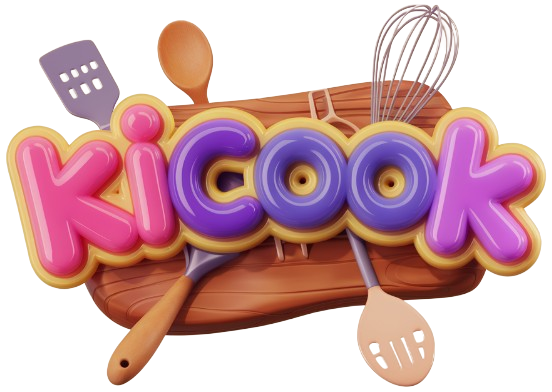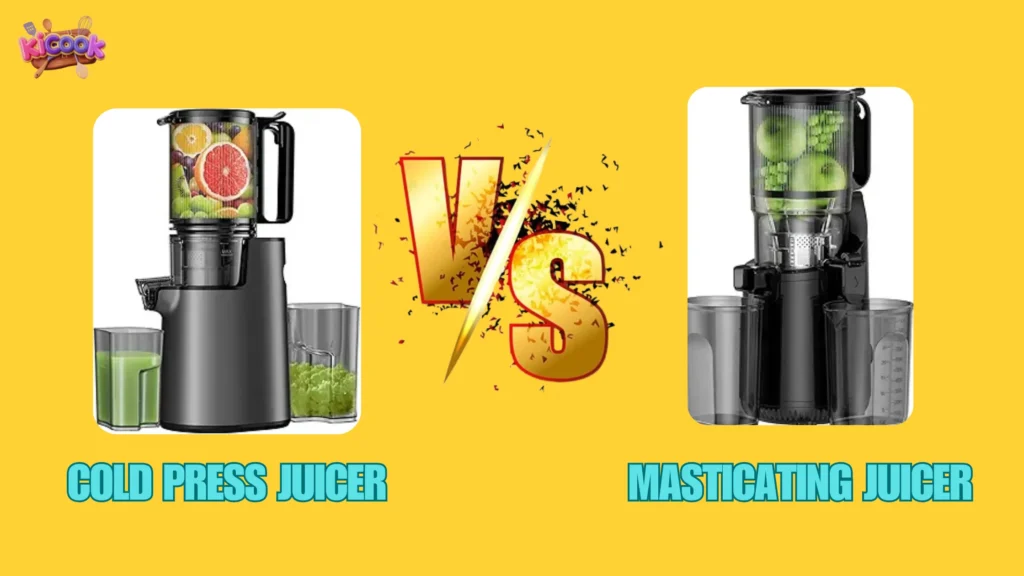I’m excited to share my findings on the cold press juicer vs masticating juicer debate. Understanding the unique features of each juicer is key for maximizing nutrient retention.
In this article, I’ll explore the differences and benefits of cold press and masticating juicers.
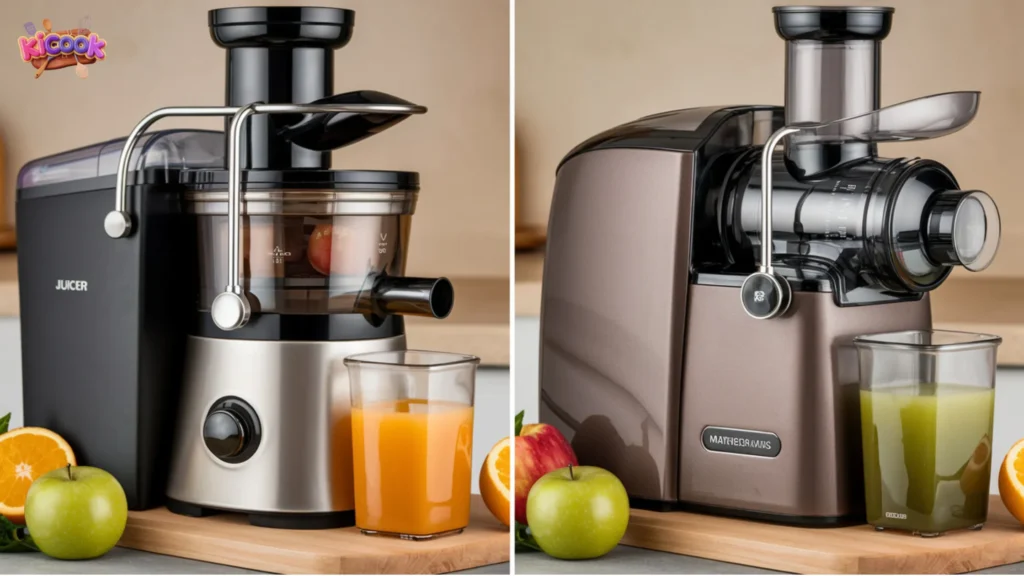
A visually split composition showcasing a cold press juicer on one side and a masticating juicer on the other, each filled with vibrant, fresh fruits and vegetables. The cold press juicer features sleek, modern design with a shiny stainless steel finish and juice flowing delicately into a glass.
While the masticating juicer is portrayed with a more robust, traditional appearance, surrounded by freshly ground pulp and colorful ingredients. Soft natural lighting enhances the freshness of the produce, highlighting the contrasting styles and functionalities of both juicers.
I’ll cover the basics of both juicers and compare their features and benefits. By the end, you’ll know which juicer is best for you. We’ll look at cold press juicer reviews and slow juicer benefits.
Key Takeaways
- Understanding the differences between cold press juicers and masticating juicers is essential for making an informed decision.
- Cold press juicers and masticating juicers offer unique benefits, including slow juicer benefits and high-quality juice extraction.
- Cold press juicer reviews can provide valuable insights into the performance and durability of these juicers.
- Slow juicer benefits include reduced oxidation and preserved nutrients.
- Cold press juicer vs masticating juicer comparisons can help you choose the best juicer for your needs and budget.
- Considering factors such as juice quality, nutrient retention, and ease of use is crucial when selecting a juicer.
- Reading cold press juicer reviews and understanding the features of each type of juicer can help you make a well-informed decision.
Understanding Juicer Technology Basics
Exploring juicer technology is key to seeing the cold press and masticating juicer differences. Cold press juicers are slow and gentle, keeping natural enzymes and nutrients in fruits and veggies. Masticating juicers, with their single or dual auger, offer more juice and drier pulp.
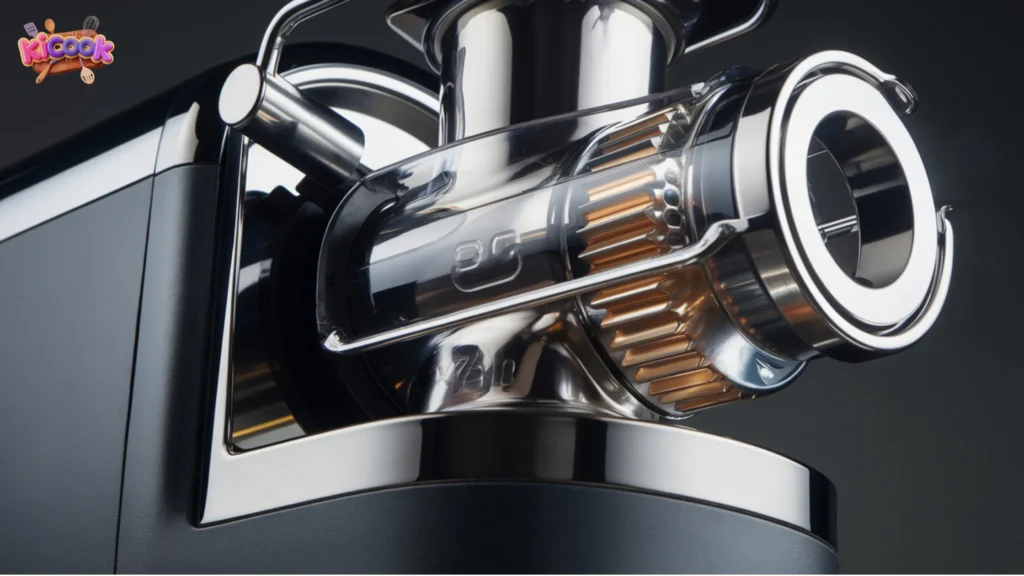
The tech behind these juicers is quite different. Cold press juicers use a hydraulic press, while masticating juicers crush and grind. This tech choice impacts the juice’s quality and amount.
What Makes a Cold Press Juicer Unique
Cold press juicers stand out for keeping natural flavors and nutrients intact. Their slow process avoids oxidation and heat, making the juice better and more nutritious.
How Masticating Juicers Work
Masticating juicers crush and grind produce with a single or dual auger. This method results in more juice and drier pulp, appealing to many juicers.
The Evolution of Juicing Technology
Juicing tech has evolved, giving us various juicers with unique features. From cold press to masticating, knowing the differences helps in choosing the right one.
| Juicer Type | Technology | Benefits |
|---|---|---|
| Cold Press | Hydraulic Press | Preserves natural enzymes and nutrients |
| Masticating | Single or Dual Auger | Higher yield and drier pulp |
Cold Press Juicer vs Masticating Juicer: A Detailed Comparison
Choosing the right juicer for your home is key. This article compares cold press and masticating juicers. It’s a juicer buying guide to help you decide.
A cold press juicer uses a hydraulic press to get juice. It gives more juice and less foam. A masticating juicer, however, crushes and presses the produce. It’s slower but makes better juice.
Here are some things to think about:
- Ease of use: Cold press juicers are simpler to use and clean. Masticating juicers take more effort.
- Juice quality: Masticating juicers make juice with more nutrients and less damage.
- Price: Cold press juicers cost more but offer convenience and speed.
Choosing between a cold press and a masticating juicer depends on what you need. Think about these points and research to find the perfect juicer for you. Enjoy fresh, healthy juice at home.
| Juicer Type | Ease of Use | Juice Quality | Price |
|---|---|---|---|
| Cold Press Juicer | Easy | High | Expensive |
| Masticating Juicer | More labor-intensive | Higher | Less expensive |
Nutrient Retention and Juice Quality
Juicing is all about keeping nutrients and quality high. In my research on cold press and masticating juicers, I see how vital it is to keep natural enzymes and nutrients from fruits and veggies. Both types aim to make high-quality juice with little oxidation, but they do it differently.
Cold press juicers are praised for keeping nutrients intact. Their gentle method reduces heat and oxidation. Masticating juicers, on the other hand, crush slowly to extract juice, also keeping nutrients and preventing oxidation.
Enzyme Preservation Methods
Keeping enzymes in juice is key to its nutritional value. Cold press juicers use a hydraulic press to extract juice, preserving enzymes. Masticating juicers crush slowly, also preserving enzymes.
Oxidation Prevention Techniques
Oxidation can harm juice quality and nutrient loss. Both types of juicers prevent this by using slow extraction and minimal heat. Some even have special features like airtight containers and nitrogen flushing.
Juice Shelf Life Comparison
How long juice lasts is important for those who drink it all day. Studies show cold press juice can last up to 72 hours, while masticating juice can last up to 48 hours. But, shelf life also depends on how you store and handle the juice.
| Juicer Type | Juice Shelf Life |
|---|---|
| Cold Press Juicer | Up to 72 hours |
| Masticating Juicer | Up to 48 hours |
Speed and Processing Time Analysis
Choosing between a cold press juicer and a centrifugal juicer involves looking at speed and processing time. I value efficiency, so I’m interested in how these juicers compare. Masticating juicers are known for preserving nutrients, but how fast are they compared to centrifugal juicers?
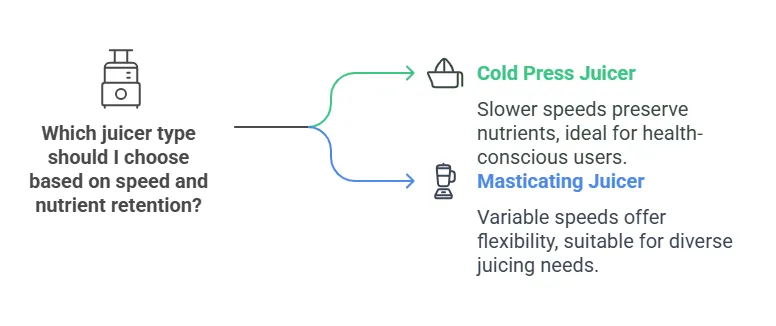
Cold press juicers work at slower speeds, which helps keep nutrients in the juice. Masticating juicers can vary in speed, depending on the model. Here are some important points:
- Cold press juicers: slower speeds, typically around 80-100 RPM
- Masticating juicers: variable speeds, ranging from 40-150 RPM
- Centrifugal juicers: high speeds, typically around 3000-15000 RPM
Masticating juicers are generally faster than cold press juicers, especially for large amounts of produce. But, they might not keep as many nutrients as cold press juicers. Speed and processing time are key for those who want efficiency and convenience.
A detailed comparison illustration featuring a cold press juicer on one side and a centrifugal juicer on the other. The cold press juicer is depicted with fresh fruits and leafy greens, emphasizing its slow, gentle extraction process. The centrifugal juicer is shown with colorful fruits being rapidly processed, highlighting its fast spinning action.
The background showcases a vibrant kitchen setting, filled with various fruits and vegetables, capturing the essence of healthy juicing. The lighting should be bright and inviting, enhancing the visual appeal of both juicers in action.
The choice between a cold press juicer and a masticating juicer depends on your needs. If you need speed and efficiency, a masticating juicer might be best. But, if you want to keep more nutrients and don’t mind slower speed, a cold press juicer could be better.
| Juicer Type | Speed (RPM) | Processing Time |
|---|---|---|
| Cold Press Juicer | 80-100 | Slower |
| Masticating Juicer | 40-150 | Faster |
| Centrifugal Juicer | 3000-15000 | Fastest |
Price Points and Value Considerations
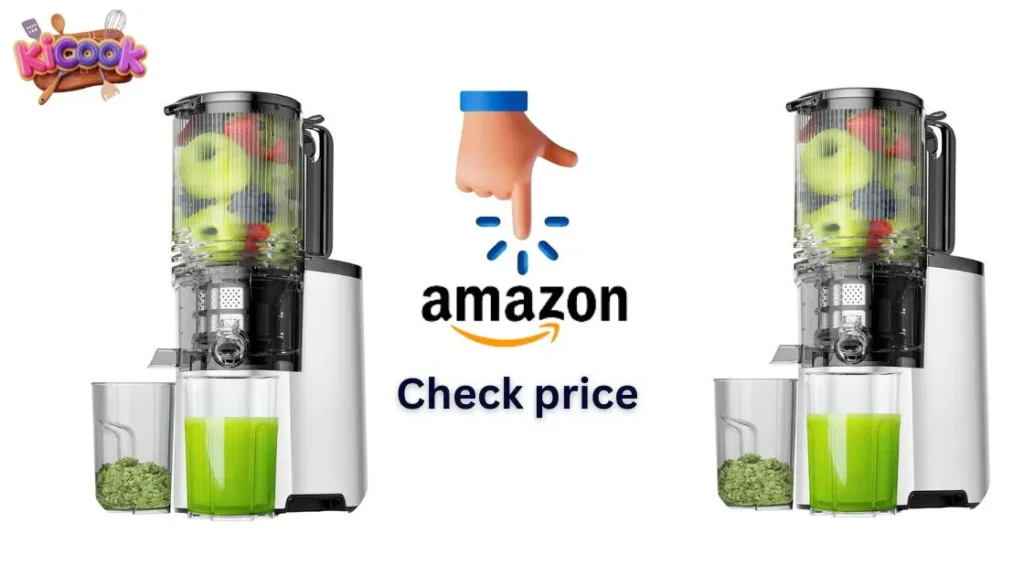
👉👉👉Get the Latest Prices and Offers on Amazon👈👈👈
When buying a juicer, the price and value are key. I look at the cold press and masticating juicer benefits to find the best deal. Cold press juicers cost between $200 and $500. Masticating juicers are pricier, ranging from $300 to $600.
Prices vary based on brand, model, and features. I consider long-term costs, warranty, and durability. For example, some cold press juicers come with longer warranties, offering more peace of mind.
- Initial investment: The upfront cost of the juicer
- Long-term cost benefits: The potential savings on juice purchases and health benefits
- Warranty and durability: The length of the warranty and the durability of the juicer
By looking at these factors, I can pick the juicer that offers the most value. This helps me make a smart choice.
| Juicer Type | Initial Investment | Long-term Cost Benefits | Warranty and Durability |
|---|---|---|---|
| Cold Press Juicer | $200-$500 | Potential savings on juice purchases | 5-10 year warranty |
| Masticating Juicer | $300-$600 | Potential health benefits and savings | 5-10 year warranty |
In the end, the choice depends on what I need and want. By comparing cold press and masticating juicers, I can find the best value for my money.
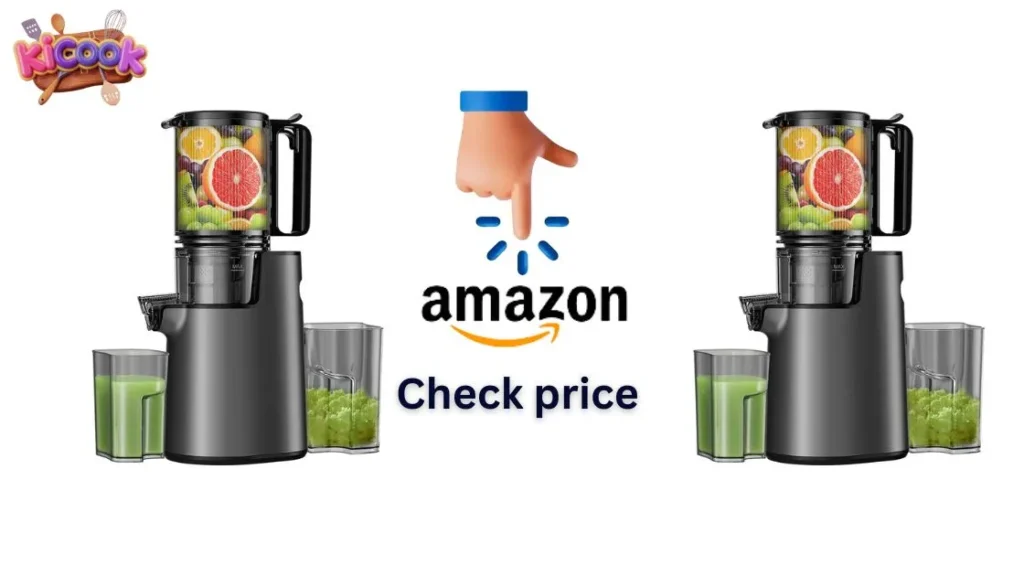
👉👉👉Get the Latest Prices and Offers on Amazon👈👈👈
Maintenance and Cleaning Requirements
When looking at cold press juicer reviews, maintenance and cleaning are key. A juicer that’s well-kept works better and lasts longer. Cold press and masticating juicers need different cleaning methods, with some being easier than others.
Cleaning regularly stops juice residue and pulp from messing up the taste and quality. Masticating juicer benefits include easy cleaning, thanks to fewer parts and simpler design. Cold press juicers might need more work to clean, but it’s worth it.
Here are some cleaning tips:
- Wash the juicer parts with warm soapy water regularly
- Use a soft brush to get rid of pulp or residue
- Dry the parts well to avoid rust or corrosion
By following these steps, you can keep your juicer running smoothly. Enjoy fresh, healthy juice. Always check the maker’s guide for specific cleaning and care tips.
A bright and modern kitchen countertop featuring a cold press juicer disassembled for cleaning. Various tools and cleaning supplies, like a brush, sponge, and detergent, are neatly arranged nearby. Fresh fruits and vegetables are in the background, highlighting the juicing process. Sunlight streams through a window, illuminating the scene, creating a fresh and inviting atmosphere.
In summary, maintenance and cleaning are vital for juicer owners. Pick a juicer that matches your lifestyle and cleaning habits. This way, you can enjoy the perks of cold press juicer reviews and masticating juicer benefits without the hassle.
Versatility in Food Processing
Both cold press juicer vs masticating juicer have their own strengths in versatility in food processing. They can do more than just juice. Some can make nut butters, sorbets, and frozen desserts. This makes them more convenient for daily use.
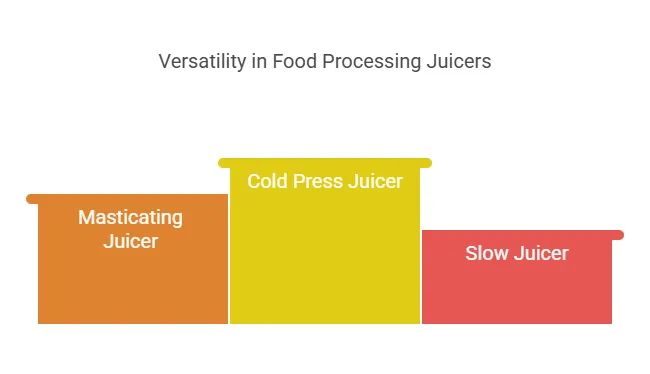
Slow juicer benefits include processing a wide range of produce. This is great for those who like to try new recipes. They can handle soft fruits to leafy greens.
Types of Produce Each Can Handle
- Cold press juicers are great for juicing soft fruits, such as berries and citrus
- Masticating juicers can handle tougher produce, like leafy greens and wheatgrass
- Some models can even process nuts and seeds, making them perfect for making nut butters and milks
In terms of versatility in food processing, some juicers have extra features. These include built-in strainers and pulp ejection systems. These features help process more produce and reduce waste.
Additional Food Processing Features
Some popular brands offer juicers with advanced features. These include automatic shut-off and variable speed control. These features let you customize the juicing process and get the most from your produce.
| Feature | Cold Press Juicer | Masticating Juicer |
|---|---|---|
| Types of Produce | Soft fruits, citrus | Leafy greens, wheatgrass |
| Additional Features | Strainers, pulp ejection | Automatic shut-off, variable speed control |
Noise Levels and Operation
When it comes to noise levels and operation, both cold press juicer reviews and masticating juicer comparison are key. Some juicers are quieter, perfect for early mornings or late nights. This makes them great for those who value a peaceful juicing experience.
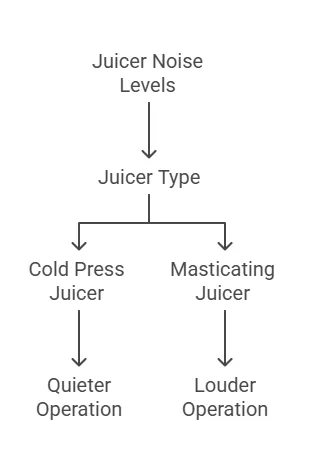
The noise levels of each juicer type are important. Cold press juicers are generally quieter than masticating juicers. They use a slow, gentle pressing motion. This results in a quieter operation. Masticating juicers, however, use a chewing motion, which can be louder.
Here are some key points to consider when evaluating the noise levels and operation of cold press juicers and masticating juicers:
- Cold press juicers: generally quieter, with noise levels ranging from 40-60 decibels
- Masticating juicers: slightly louder, with noise levels ranging from 60-80 decibels
- Operation: cold press juicers tend to be more straightforward, while masticating juicers may require more effort to clean and maintain
Choosing between a cold press juicer and a masticating juicer depends on your preferences. If noise levels and operation are important, look into cold press juicer reviews. This will help you find the best one for you.
Space and Storage Requirements
When picking between a cold press juicer and a masticating juicer, think about space and storage. Both have their perks, like the cold press juicer advantages and masticating juicer benefits. But, the space they take up can affect how easy they are to use.
It’s key to consider counter space needs when choosing a juicer. A smaller design is a big plus in small kitchens. Some juicers are made to be more compact, perfect for tight spaces.
Counter Space Needs
Here are some things to think about for counter space needs:
- Dimensions: Check the juicer’s length, width, and height to make sure it fits on your counter.
- Design: Look for juicers with a compact design or a vertical shape to save space.
- Portability: If you’ll be moving the juicer, think about its weight and how easy it is to carry.
Storage Solutions
Good storage can make a big difference. Here are some ideas:
- Juicer accessories: Keep accessories like cups, lids, and brushes in a special container.
- Countertop organizers: Use a countertop organizer to keep the juicer and its parts tidy and easy to find.
- Cabinet storage: If you don’t have much counter space, store the juicer in a cabinet or on a shelf when not using it.
By thinking about space and storage, you can enjoy your juicer without cluttering your kitchen. Make sure to pick a juicer that matches your lifestyle and available space.
Who Should Choose Which Type
Choosing between a cold press juicer and a masticating juicer depends on your lifestyle and preferences. Both types are great for home use but serve different needs. Let’s look at who might prefer each type.
People who want something easy to use and are ready to spend on quality might like cold press juicers. On the other hand, those looking for something versatile and affordable might choose masticating juicers. Think about how often you’ll use it, your kitchen space, and your budget when deciding.
Ideal User Profiles
Busy professionals might prefer cold press juicers for their ease and speed. Health enthusiasts who like trying new recipes might prefer masticating juicers. Knowing your needs helps you pick the right juicer for you.
Lifestyle Considerations
The choice between cold press and masticating juicers depends on your situation. If convenience is key, a cold press juicer might be best. But if you’re looking for something that does it all and is affordable, a masticating juicer could be the better choice. Consider your lifestyle and needs to find the perfect juicer for your home.
Conclusion
Choosing between a cold press juicer and a masticating juicer depends on what you need. Cold press juicers keep more nutrients in your juice. Masticating juicers are great for making different types of juice.
Think about the juice quality, how fast it’s made, how easy it is to clean, and the cost. This will help you pick the juicer that fits your lifestyle and health goals.
If you want to make juice that’s full of vitamins and minerals, or if you’re always on the go, there’s a juicer for you. Look at cold press juicer reviews and masticating juicer comparison to choose wisely. This will help you live a healthier, more vibrant life.
FAQ
What are the key differences between a cold press juicer and a masticating juicer?
Cold press juicers use a slow, hydraulic press to extract juice. Masticating juicers crush and grind produce with a single or dual auger system. Cold press juicers keep more nutrients and enzymes, while masticating juicers yield more juice with drier pulp.
What are the benefits of using a slow juicer (masticating or cold press)?
Slow juicers, like masticating and cold press, offer many benefits. They make high-quality juice with more nutrients and enzymes. The slow process also means less oxidation and foam.
They can handle a variety of produce, including leafy greens and wheatgrass. This makes them better than centrifugal juicers.
What are the key features to look for when reviewing cold press juicer models?
Look for the juicing mechanism, motor power, and feed chute size. The pulp ejection system and ease of cleaning are also important. Check the juice yield, foam, and pulp level too.
How do masticating juicers compare to cold press juicers in terms of juice quality and nutrient retention?
Both masticating and cold press juicers keep more nutrients and enzymes than centrifugal juicers. Cold press juicers are slightly better at this due to their slower process. Masticating juicers, however, yield more juice with drier pulp.
What are the best juicers for home use, and how do cold press and masticating juicers fit into that category?
Both cold press and masticating juicers are great for home use. Cold press juicers are best for those who want nutrient-rich juice. Masticating juicers offer a good balance of quality, yield, and versatility.
Consider price, ease of use, and cleaning when choosing the best juicer for your home.
What are the key differences in juicing technology between cold press and centrifugal juicers?
Cold press juicers use a slow, hydraulic press or auger system. Centrifugal juicers spin fast to shred and extract juice. This means cold press juicers keep more nutrients, while centrifugal juicers make more juice quickly.
What are the main benefits of using a masticating juicer?
Masticating juicers offer higher juice yields and drier pulp. They also keep more nutrients and can handle a wide variety of produce. The slow process minimizes oxidation, making the juice last longer.
How do I choose between a cold press juicer and a masticating juicer when shopping for a new juicer?
Think about what matters most to you. If you want the best juice quality, choose a cold press juicer. For more juice and versatility, go for a masticating juicer.
Also, consider your budget, space, and cleaning preferences. This will help you make the right choice.
